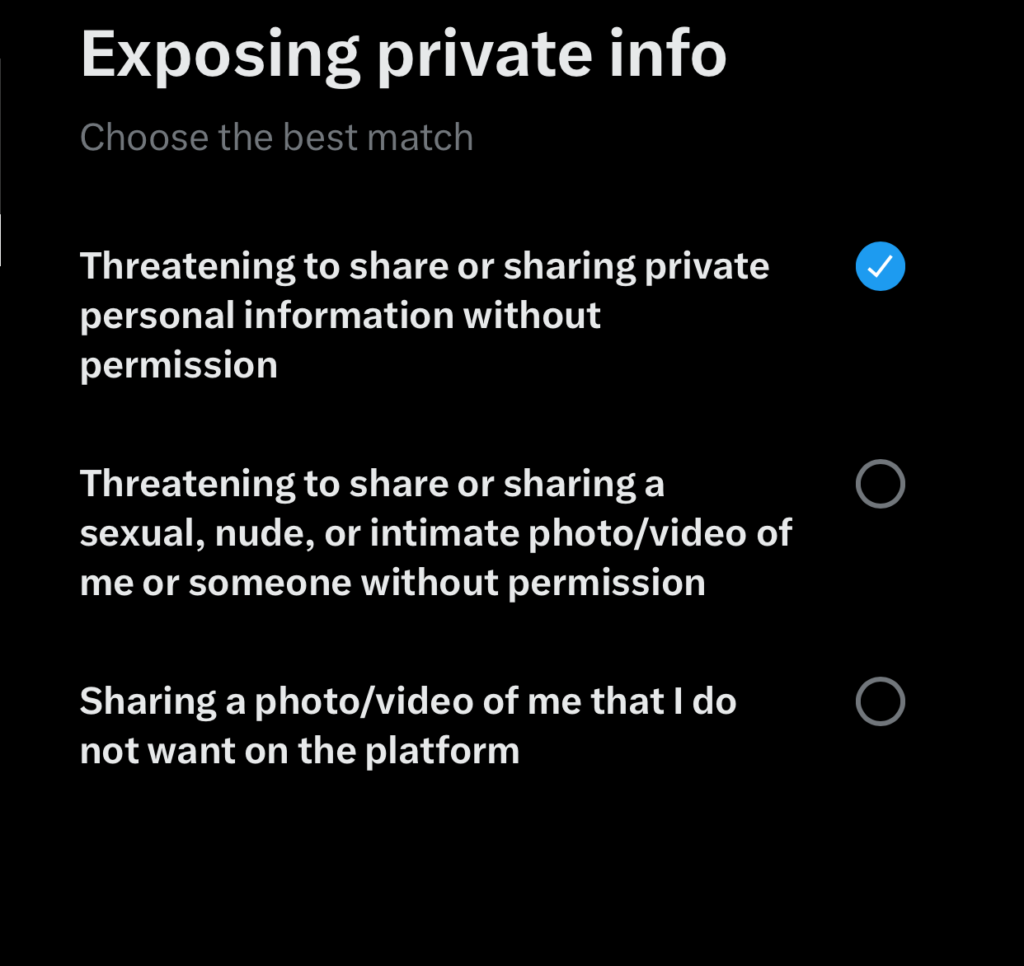5 Lessons from the Administrative Results Doxx
Laura Martisiute
Reading time: 7 minutes

Table of Contents
One of the most notorious recent doxxing incidents is the Administrative Results doxx. This incident saw a well-known YouTuber’s personal information posted online without his permission.
But what exactly happened, and what lessons can we learn from it? Let’s find out.
What Was the Administrative Results Doxx?
In 2023, a Twitter user doxxed Administrative Results, a popular “guntuber” who frequently posts pro-gun content on YouTube.

The user shared Administrative Result’s real full name, as well as the name of his wife, her photo, and place of work.
Once this information was published, most internet users condemned the doxxing incident, in part because of how the doxxer had also targeted the guntuber’s family members.
5 Lessons from Administrative Results Doxx
While doxxing is invariably bad, there are lessons to be learned from every incident.
Here’s what we can learn from the Administrative Results doxx specifically.
1. Be careful about what you say online
Administrative Results was doxxed because he has a popular YouTube channel on which he makes controversial jokes.
Anytime you say or do something online, you’re risking a backlash as users with opposite opinions to yours may take offense – and then go on the offensive.
Being on YouTube with a popular channel puts Administrative Results and other creators in the crosshairs of doxxers. However, that doesn’t mean those who don’t have popular channels or aren’t on YouTube aren’t at risk.
When it comes down to it, doxxing is becoming a regular practice for people who want to get back at or punish someone they disagree with or don’t like. Simply getting into an argument with an online troll – or backing someone else in a debate on an X thread – could open you up to being a doxxing target.

2. There’s more public information about you than you might realize
Many people don’t realize how much of their personal information is on the internet.
In the case of Administrative Results, he had an LLC under the same name as his channel, and the LLC’s registration included his personal information, making it easy to dox him.

But you don’t have to make the same mistake to be doxxable. Everything from your username to your social media posts to forum comments can provide a trail for bad actors to follow, allowing them to piece together a picture of your life as they do so.
For example, someone could search for your username on different social media platforms to see if you use the same one in multiple places.
If your real name is attached to your username or if you’ve linked your social media accounts to your professional accounts, the trail becomes incredibly easy to follow. From there, doxxers can find out who your family members are, who your friends are, and so on.
One of the first places doxxers look for information is data brokers.
Data brokers are companies that collect data from a wide variety of sources (including social media and public records), compile it into profiles that can be found by searching for your name, username, or email address, and sell these profiles for a minimal fee.
You can (and should) opt out of data brokers, but be aware that you will need to opt out of each broker that has a profile on you (check out our opt-out guides for step-by-step instructions).
You’ll need to repeat the opt-out process in the future, as data brokers routinely reactivate old profiles when they come across new data.
Alternatively, you can subscribe to a service like DeleteMe, which can handle the opt-out process for you.
3. You might not even know you’ve been doxxed
Although the Administrative Results 2023 doxxing incident made some waves, it wasn’t even the first time he’d been doxxed, as other internet users were quick to point out.

It’s far from uncommon for internet users to be unaware that their personal information is publicly visible somewhere online, whether due to someone having doxxed them or public records showing far too much info.
To make sure that your information isn’t exposed without your knowledge, you should start doxxing yourself.
It may sound odd, but if you’re doxxing yourself (and subsequently sealing up the holes you find by removing your data), it means that someone else will have a harder time doing so in the future. Read our guide on how to dox yourself to get started, and check out our list of self-doxxing tools.
A simple step to take as you embark on the journey of online privacy is to set up a Google Alert with your full name or other identifying information (the guide linked above goes through how to do so).
With Google Alerts set up, anytime a Google Search result includes your information, you’ll get an email notifying you about it.
4. Your family is at risk, too
Unsettlingly, doxxers often target their victim’s family members, too, as was the case in the Administrative Results dox. Administrative Results’ wife’s full name, photo, and place of work were all revealed.

By doxxing yourself and actively working to shrink your online footprint, you’ll be protecting your family members as well as yourself.
5. You can report doxxers
It’s important to remember that social media platforms (and Google) have methods of reporting doxxing to have the content removed.
In the case of Administrative Results, the Twitter account that reported the doxxing and the original post were reported by Twitter users, leading both of them to be removed from the platform.
Each platform has its own policies and methods for reporting doxxing. If you’re a regular user of a particular platform (X/Twitter, YouTube, TikTok, etc.), familiarize yourself with the steps involved so you can handle doxxing incidents quickly.

Depending on where you live, doxxing may be illegal.
While doxxing is not considered a crime at the federal level in the US, some states have made the act of publishing someone else’s personal information without their permission illegal (including California and Illinois), and a growing number of states are considering it.
In states where doxxing is not illegal, other dangerous activities and behaviors that stem from it might be, including harassment, stalking, cyberstalking, swatting, and extortion.
Becoming Undoxxable
Even with possible legal protection and the ability to report doxxing incidents to online platforms, the best defense against being doxxed is to reduce how much information exists about you online.
To get closer to becoming undoxxable, you’ll want to dox yourself. By doxxing yourself, you’ll figure out where your data vulnerabilities are and what steps you’ll need to take to remove your personal information from public view.
Most people find that they’ll need to:
- Opt out of data brokers repeatedly (unless you subscribe to a data broker removal service like DeleteMe, in which case our privacy experts will continuously delete you from these sites on your behalf).
- Change social media privacy settings so that posts aren’t viewable to everyone.
- Unlink social media accounts and use different usernames across all online accounts.
- Request data removal from Google products.
- Stop sharing personal information online.
Just because doxxing exists doesn’t mean we have to stop using the internet – but the increasing rise in doxxing incidents does emphasize the need to be cautious about our online privacy.
Learn more in our guide on how to prevent doxxing.
Our privacy advisors:
- Continuously find and remove your sensitive data online
- Stop companies from selling your data – all year long
- Have removed 35M+ records
of personal data from the web
Save 10% on any individual and
family privacy plan
with code: BLOG10
news?
Don’t have the time?
DeleteMe is our premium privacy service that removes you from more than 750 data brokers like Whitepages, Spokeo, BeenVerified, plus many more.
Save 10% on DeleteMe when you use the code BLOG10.

















